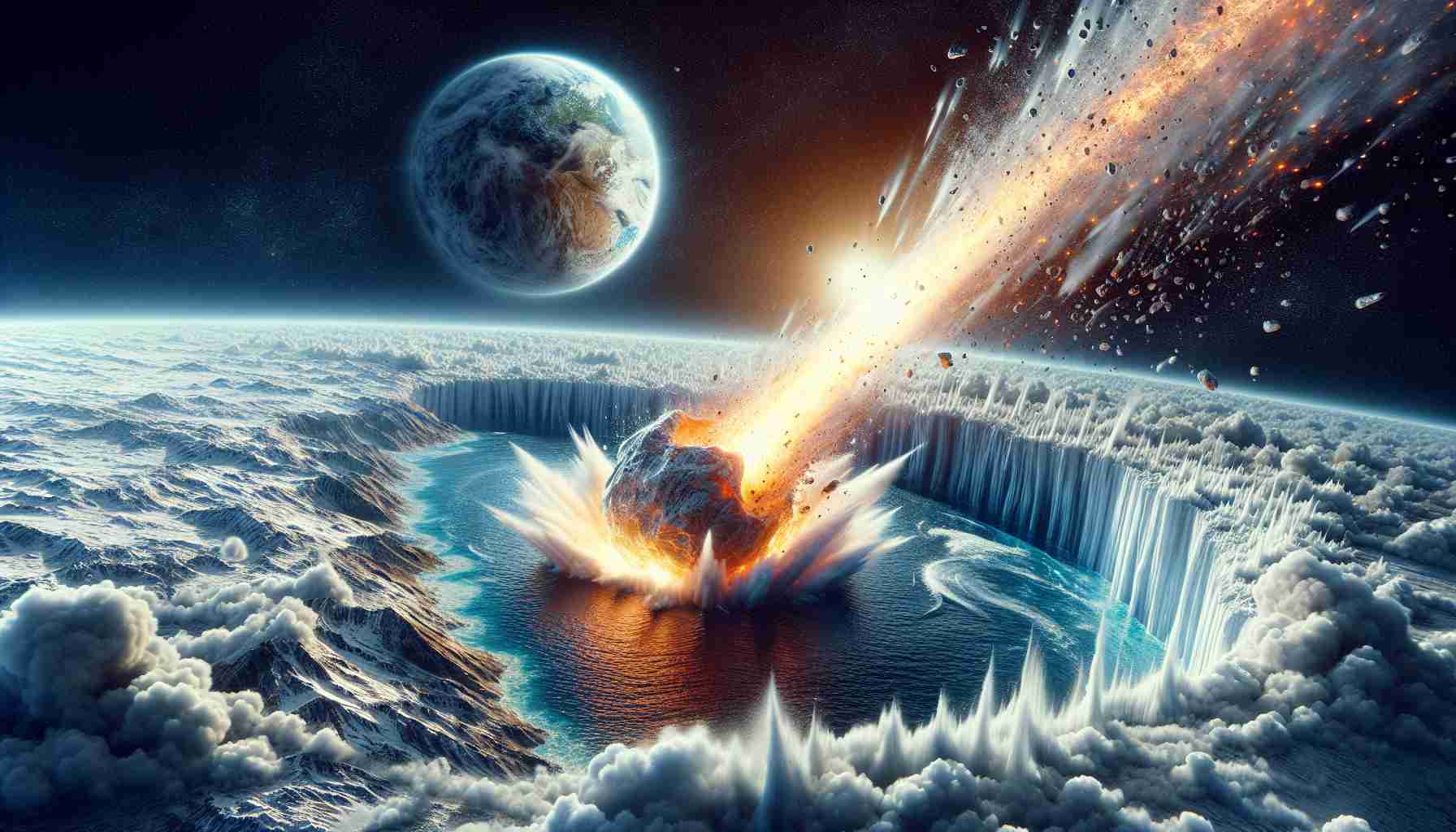- An asteroid impact could cause a drastic decline in terrestrial photosynthesis, leading to significant food shortages.
- Microscopic plankton may flourish post-impact due to iron-rich dust, causing large algae blooms.
- Ocean productivity may rebound quickly, providing vital resources for marine life and potentially alleviating food insecurity.
- The study uses climate modeling to illustrate the stark differences between terrestrial and marine responses to asteroid impacts.
- Past asteroid impacts could have influenced human evolution, suggesting a complex relationship between ecological upheavals and species development.
- The ocean’s resilience highlights the balance between destruction and regeneration in Earth’s history.
Imagine a world plunged into chaos after a 500-meter asteroid collides with Earth. This stark scenario reveals a potential “impact winter,” where temperatures plummet by 4°C and rainfall decreases significantly, leading to widespread food shortages. But amidst this bleakness, a surprising lifeline emerges from the ocean.
Researchers at the IBS Center for Climate Physics have uncovered an astonishing twist: while terrestrial plants struggle, microscopic plankton could thrive! Fueled by iron-rich dust kicked up by the asteroid impact, these tiny organisms may trigger enormous algae blooms, reshaping marine ecosystems and providing a critical food source for marine life amid land-based devastation.
The study employs advanced climate modeling to simulate these catastrophic events, highlighting a dramatic decrease in photosynthesis on land—up to 30%—but an unexpected rebound in oceanic productivity shortly after the impact. This marine growth could not only support marine food chains but also potentially mitigate food insecurity for other species, including humans.
As we marvel at this striking contrast, researchers ponder the question: did past asteroid impacts influence human evolution? With medium-sized asteroids hitting Earth every 100,000 to 200,000 years, our ancestors might have encountered similar ecological upheavals, possibly shaping our genetic destiny.
The takeaway? In the face of catastrophic events, the ocean may hold keys to survival, reminding us of the intricate balance between destruction and regeneration in our planet’s history. Keep an eye on the skies—you never know when Earth’s past might come crashing down!
A Surprising Lifeline: How Oceanic Plankton Could Save Earth After an Asteroid Impact
Understanding Asteroid Impact and Oceanic Resilience
The prospect of a catastrophic asteroid collision with Earth raises pressing concerns about the future of life on our planet. Researchers at the IBS Center for Climate Physics have made an astonishing finding: in the wake of a significant asteroid impact, while land-based ecosystems may face dramatic declines, oceanic environments might flourish due to the rise in plankton populations. This discovery highlights both the fragility of terrestrial ecosystems and the resilience of marine life.
New Insights into Marine Ecosystems
1. Plankton as a Key Player: The research indicates that the iron-rich dust released from an asteroid impact could serve as a nutrient source for plankton. This could lead to significant algal blooms, a phenomenon that can shift the dynamics of marine food chains, potentially providing a buffer against food shortages for various marine species.
2. Photosynthesis Drops and Ocean Quality Improves: The study’s climate models predict a staggering decline in land-based photosynthesis by 30%, while oceanic productivity might surge. This contrast illustrates how different ecosystems react to drastic changes, and it poses important questions about the interconnectedness of terrestrial and marine environments.
3. Historical Context: This research opens up avenues for exploration into whether previous asteroid events influenced the evolution of life on Earth, particularly human evolution. With a history of similar impacts, understanding the ecological responses could provide insights into our own species’ resilience and adaptability.
Key Questions Related to Asteroid Impacts
1. How does marine productivity impact the food chain after an asteroid strike?
Marine productivity can act as a critical stabilizer for food webs. If plankton populations increase, they can sustain larger marine species, which may, in turn, impact fisheries and human food sources positively.
2. What measures can humanity take to prepare for potential asteroid strikes?
Preparation could include investing in asteroid detection technologies and developing emergency protocols that focus on food security and ecological restoration, particularly for marine environments, which might remain more productive than terrestrial ones following an impact.
3. Can the lessons learned from simulated asteroid impacts be applied to current climate challenges?
Yes, understanding the resilience of ecosystems and potential shifts in marine productivity can inform conservation strategies and approaches to mitigating the impacts of climate change, highlighting the importance of maintaining healthy oceanic environments.
Conclusion
In the face of planetary threats, our oceans might just hold the key to survival and regeneration. This intriguing interplay between destruction and resilience challenges our extinction narrative and compels us to re-evaluate our relationship with the marine world.
For more information on climate modeling and the implications of asteroid impacts on ecosystems, visit IBS Center for Climate Physics.













